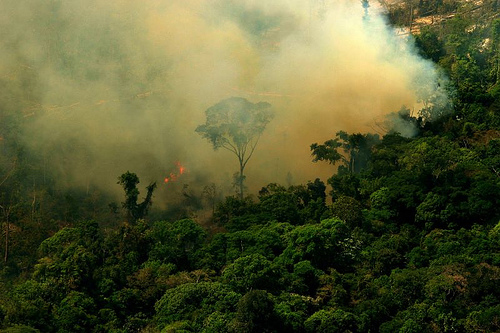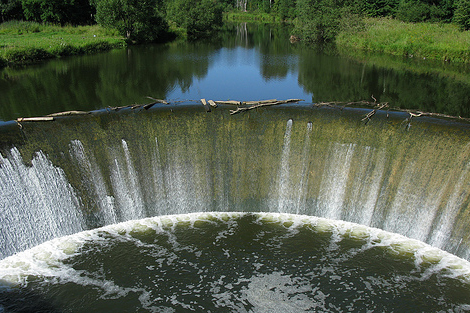
Flickr/<a href="http://www.flickr.com/photos/leoffreitas/">leoffreitas</a> (Creative Commons)
To meet its lofty 2020 goals for biofuel production, Brazil will need to make some difficult choices that pit conservation against biomass. But Brazil denies that it will have to make such a choice, arguing that the uptick in biofuels will have a minimal impact on deforestation.
Not so fast, says a new paper in Proceedings in the Natural Academy of Sciences, which argues that Brazil understates the impact a biofuel increase will have on the country that is already responsible for twenty percent of the world’s deforestation.
This is exactly consistent with the conservation methods promoted by the Brazilian government so far. Brazil preserves 50,000 acres in the Atlantic forest against deforestation, but displaces indigenous people in the process. Brazil promotes a hydro-electric dam saying that no indigenous people will be directly displaced. Tell that to the 12,000 people indirectly affected. And in this most recent move, Brazil will endanger the Amazon in order to meet its 2020 biofuel quota.
To make way for the additional 63,800 square miles of sugarcane and soybean farmland that the report estimates is necessary for the biofuels, the Brazilian government will displace cattle farms, currently the largest source of deforestation in the Amazon. The carbon payback time for 1,500 square miles of the project’s direct deforestation would be 35 years, says the paper. But taking indirect deforestation into account could add an additional 210 years of carbon payback for soybeans alone.
“Indirect land-use change could considerably compromise the GHG savings from growing biofuels” by expanding 47,000 square miles into Amazon forests and 18,000 square miles into other “native habitats,” writes David Lapola of the German University of Kassel.
Conservation often requires a difficult choice between opposing options. So far, the Brazilian government has brushed aside firm choices, shifting priorities to fit the issue of the day. To solve this problem, Lapola and his colleagues suggest “an increased interconnection between land-use sectors” that would modernize cattle ranching to minimize indirect land use change from biofuels.
That should work this time, but let’s hope it sticks the next time a tough eco-choice comes along.











